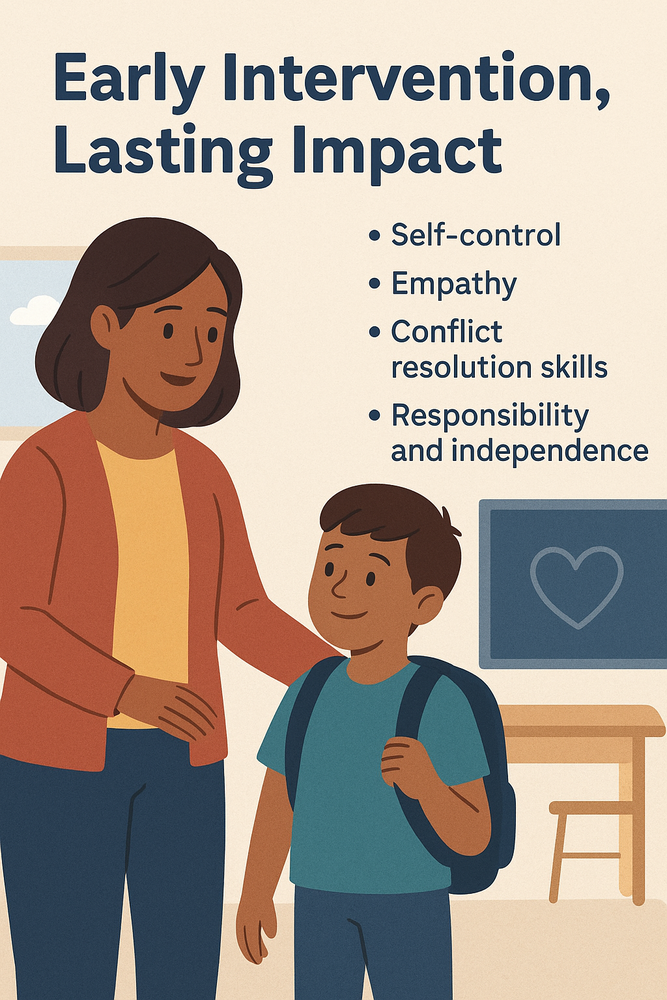If you have ever had a conversation with Dr. Stefani, Principal at Cleveland Elementary, you've heard her talk about this exact message.
Elementary schools hold a rare and powerful opportunity — not just to teach reading and math, but to shape the behaviors, mindsets, and habits that form the foundation of a child’s future. It’s during these early years that students are most open to guidance, most impressionable to values, and most responsive to positive reinforcement. And crucially, the consequences of missteps are still low enough to allow for learning, not punishment.
Early Intervention, Lasting Impact
By teaching behavioral expectations with patience, consistency, and compassion in elementary school, educators can help students build:
Self-control
Empathy
Conflict resolution skills
Responsibility and independence
These aren't just classroom management tools — they are life skills. When children understand how to express frustration in healthy ways, work through disagreement, or bounce back from mistakes, they’re far more likely to carry those habits into adolescence and adulthood. Dr. Stefani often states, "We are not looking at your child just as a [3rd grader] but as a thriving and productive citizen of our community."
Preventing the Pipeline
As students get older, behavioral issues can become more entrenched — and more consequential. Detentions turn into suspensions. Struggles with authority can evolve into legal trouble. But when schools focus early on restorative practices, positive reinforcement, and social-emotional learning, they interrupt that pipeline. They teach students how to respond, not just react. How to reflect, not just rebel.
Creating a Culture of Belonging
Elementary school is the perfect setting to foster a safe, inclusive environment where every child feels seen and valued. When children feel they belong, they are less likely to act out and more likely to engage. That’s why culture-building — not just rule-enforcing — is so vital. It's about setting norms rooted in respect, curiosity, and care.
The Time Is Now
If we wait until middle or high school to address behavior, we often find ourselves managing damage control. But in elementary school, the door is wide open. The behaviors that are gently corrected, modeled, and reinforced today can prevent the heartbreaks of tomorrow — dropouts, discipline records, missed opportunities.
In shaping young behavior, we aren’t just managing classrooms. We’re shaping lives.
